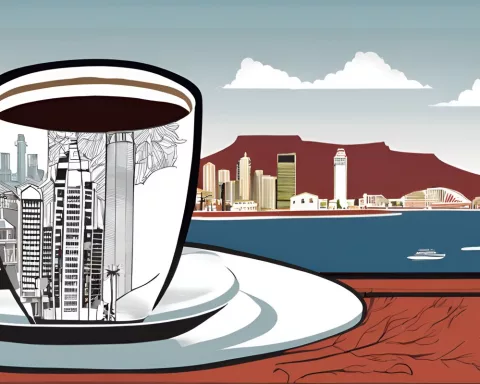Cape Town, a city with stunning views and a vibrant culture, recently experienced a week of unrest due to the taxi strike organized by the South African National Taxi Council (Santaco). Despite the turmoil, the resolution of the strike has brought about positive changes, setting a new precedent for governance in South Africa.
Accepting the Proposal
Mayor Geordin Hill-Lewis expressed his relief at the resolution of the strike, but also his frustration at the unnecessary havoc caused to the city and its residents. It is worth acknowledging that Santaco finally accepted the same proposal put forward by the city and the Western Cape Government last Friday, raising the question of whether the violence, loss of life, and damage to the economy were truly warranted.
Commendable Approach
Despite the unfortunate consequences, Hill-Lewis commended Santaco for their constructive approach in reaching an agreement. The details of the accord highlight the importance of abiding by the National Land Transportation Act (NLTA), ensuring that vehicles are roadworthy and driven by licensed drivers on designated routes. The Taxi Task Team is also set to define a list of major and minor offenses within 14 days, prioritizing commuter safety.
The newly-established agreement also includes the introduction of a dispute escalation clause, requiring the Taxi Task Team to consult with the Premier and Mayor before considering strike action. Santaco has committed not to call a strike during working hours and provide at least 36 hours’ notice for any planned action.
Upholding Rule of Law
Moving forward, this resolution sets an important precedent for South Africa’s future. By refusing to yield to violence and anarchy, Cape Town has demonstrated its unwavering commitment to the rule of law. Hill-Lewis’ firm stance on the issue sends a clear message: in Cape Town, the laws apply equally to everyone, and violence will not extract concessions from the government.
Importance of Reflection
As the city recovers from the tumultuous period, it is crucial to reflect on the significance of this resolution and its impact on the residents of Cape Town. The people who bore the brunt of the strike deserve reassurance that their government will continue to fight for their safety and well-being as they navigate the city’s streets.
A Catalyst for Change
The taxi strike may have had severe consequences, but it served as a catalyst for important change within the city’s transportation industry. Cape Town’s unwavering commitment to the rule of law has set a new standard for governance in South Africa, ensuring that this historical city will continue to thrive in the face of adversity.
Brighter Future for Cape Town
In conclusion, while the taxi strike highlighted the challenges and complexities of the transportation sector, it has paved the way for a more progressive and safer future. The introduction of the Taxi Task Team and the commitment to commuter safety shows promise for a brighter future for Cape Town’s residents and visitors alike. Through adversity, Cape Town has emerged more resilient than ever, ready to embrace the challenges and opportunities that lie ahead.












